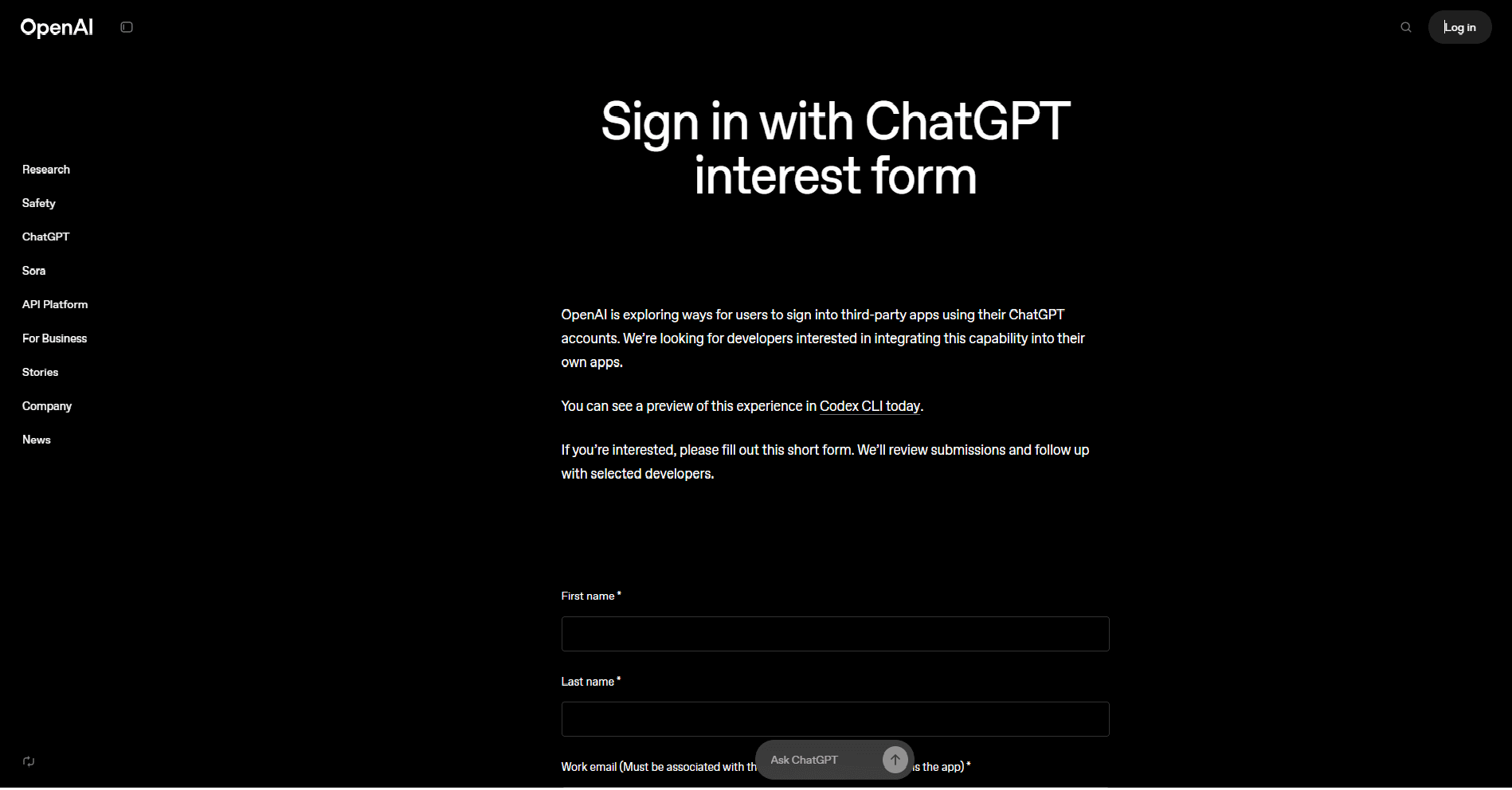TL;DR
- OpenAI introduces 'Sign in with ChatGPT' for third-party app integration.
- Developers can register interest via a designated online form.
- Aims to enhance app interoperability using ChatGPT’s capabilities.
OpenAI takes another innovative step by introducing the 'Sign in with ChatGPT' feature, a novel approach aimed at integrating ChatGPT’s expansive capabilities into third-party applications. This move is set to revolutionize how users interact with multiple platforms, providing a seamless and enhanced experience.
The initial rollout involves a pilot phase where select developers can integrate this feature into their apps, allowing users to sign in with their ChatGPT credentials. Interested developers are invited to express their interest via the OpenAI Sign-In Form.
By allowing users to sign into various platforms using their ChatGPT account, OpenAI aims to enhance how apps communicate and operate together. This integration could significantly reduce the friction typically associated with managing multiple account credentials, streamlining access across a myriad of applications.
OpenAI's initiative is part of a broader strategy to leverage AI more effectively across different platforms, making ChatGPT not just a tool for natural language processing but a connective platform that bridges diverse systems.

OpenAI's proactive invitation for developers to participate in this initiative indicates a collaborative approach. Developers are encouraged to use the sign-in interest form to gain early access and provide feedback that could shape the final stages of development.
The excitement surrounding this feature is buoyed by its potential preview via Codex CLI. Here, the beta release could show how user interactions might evolve, offering a glimpse into future possibilities for app integration and user convenience.
The potential implications of 'Sign in with ChatGPT' are vast. According to industry estimates, integrating social and professional platforms could result in time savings of up to 25% for users by reducing manual sign-ins and password resets. This efficiency translates into improved productivity and user satisfaction, offering tangible benefits for businesses and end-users alike.
Furthermore, security experts note that a single sign-on solution via ChatGPT could simplify security protocols, reducing vulnerabilities associated with multiple sign-ins.











